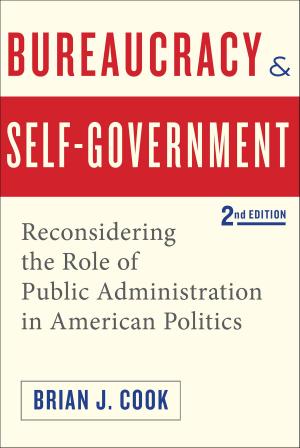The Political Philosophy of Alexander Hamilton
Nonfiction, Social & Cultural Studies, Political Science, Government, History, Americas, United States| Author: | Michael P. Federici | ISBN: | 9781421406602 |
| Publisher: | Johns Hopkins University Press | Publication: | July 9, 2012 |
| Imprint: | Language: | English |
| Author: | Michael P. Federici |
| ISBN: | 9781421406602 |
| Publisher: | Johns Hopkins University Press |
| Publication: | July 9, 2012 |
| Imprint: | |
| Language: | English |
America’s first treasury secretary and one of the three authors of the Federalist Papers, Alexander Hamilton stands as one of the nation’s important early statesmen. Michael P. Federici places this Founding Father among the country’s original political philosophers as well.
Hamilton remains something of an enigma. Conservatives and liberals both claim him, and in his writings one can find material to support the positions of either camp. Taking a balanced and objective approach, Federici sorts through the written and historical record to reveal Hamilton’s philosophy as the synthetic product of a well-read and pragmatic figure whose intellectual genealogy drew on Classical thinkers such as Cicero and Plutarch, Christian theologians, and Enlightenment philosophers, including Hume and Montesquieu. In evaluating the thought of this republican and would-be empire builder, Federici explains that the apparent contradictions found in the Federalist Papers and other examples of Hamilton’s writings reflect both his practical engagement with debates over the French Revolution, capital expansion, commercialism, and other large issues of his time, and his search for a balance between central authority and federalism in the embryonic American government. This book challenges the view of Hamilton as a monarchist and shows him instead to be a strong advocate of American constitutionalism.
Devoted to the whole of Hamilton’s political writing, this accessible and teachable analysis makes clear the enormous influence Hamilton had on the development of American political and economic institutions and policies.
America’s first treasury secretary and one of the three authors of the Federalist Papers, Alexander Hamilton stands as one of the nation’s important early statesmen. Michael P. Federici places this Founding Father among the country’s original political philosophers as well.
Hamilton remains something of an enigma. Conservatives and liberals both claim him, and in his writings one can find material to support the positions of either camp. Taking a balanced and objective approach, Federici sorts through the written and historical record to reveal Hamilton’s philosophy as the synthetic product of a well-read and pragmatic figure whose intellectual genealogy drew on Classical thinkers such as Cicero and Plutarch, Christian theologians, and Enlightenment philosophers, including Hume and Montesquieu. In evaluating the thought of this republican and would-be empire builder, Federici explains that the apparent contradictions found in the Federalist Papers and other examples of Hamilton’s writings reflect both his practical engagement with debates over the French Revolution, capital expansion, commercialism, and other large issues of his time, and his search for a balance between central authority and federalism in the embryonic American government. This book challenges the view of Hamilton as a monarchist and shows him instead to be a strong advocate of American constitutionalism.
Devoted to the whole of Hamilton’s political writing, this accessible and teachable analysis makes clear the enormous influence Hamilton had on the development of American political and economic institutions and policies.















